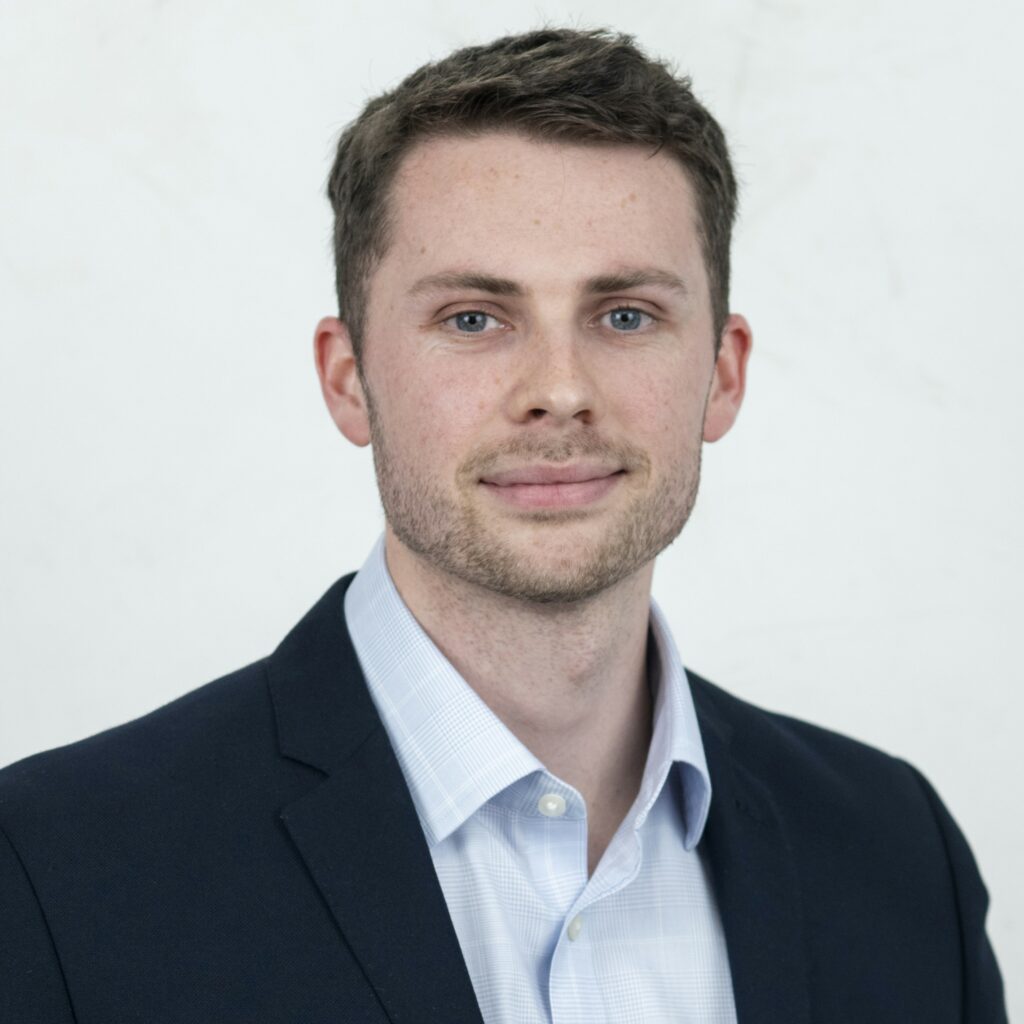
Role: Systems Engineer
Career Area: Systems Engineering
Location: Birmingham
My role at SYSTRA
As a Systems Engineer my purpose is to consider the whole system, with the end goals and user needs in mind. In my role I don’t focus on a single discipline but instead consider all the elements needed to successfully realise a system.
What that looks like day-to-day can vary massively, depending on when in the system lifecycle I am working. Early in the system lifecycle I can be working collaboratively with clients to help define their problems. These problems can be turned into a set of requirements for designers to design against.
As the system matures, I focus on bringing together or integrating system elements. Another key aspect of my role is the verification and validation of system elements to confirm they’ve been realised correctly, satisfy the requirements and ultimately meet the needs of the client.
My career journey
I didn’t take the most obvious path to my current role. I studied Mechanical Engineering at university and didn’t have a firm idea of which industry or specialism I wanted to get into. After university I worked in several industries including nuclear and power, in a variety of roles, but found my calling with systems engineering in transport when I joined the South Wales Metro programme in 2020.
I achieved Incorporated Engineer status during this time and started an MSc in Systems Engineering which I’m due to finish in 2025. The MSc has really helped to formalise and provide theoretical context to the systems engineering I’ve been doing so far. I decided to join SYSTRA in 2023 as they’d secured a place on a major systems integration framework with HS2 which I felt was an excellent career opportunity for me.
We asked Phil…
When did you realise this was the career path for you?
When I first had the chance to work as a Systems Engineer in 2020, I found it very rewarding knowing I was helping shape the whole system. As well as enjoyment, the complexity of engineered systems continues to increase to meet modern-day needs and Systems Engineers are needed more than ever to manage this complexity.
Have you got any words of wisdom for someone starting out in a similar role?
There’s a common view in the systems engineering community that the best systems engineers typically spend the early stage of their career focussing on a single discipline or specialism before moving into systems engineering. I can understand the logic, but systems engineering is ultimately a domain-agnostic practice. So, I don’t place as much importance on this notion as the wider community does. What can be observed is that technology is moving at an ever-increasing pace. My suggestion to any early careers engineer is to figure out a way to deal with this pace of change. I think one way to do that, is to treat every day as a school day where there is always something to be learnt. Don’t become complacent and believe you know everything. Even if you think you know it all, that knowledge will be out of date by tomorrow!
How does SYSTRA stand out from the rest as a great place to work?
I’ve been at SYSTRA for a little over twelve months. What I’ve observed during this time is the strength of expertise across the business, the diversity of the workforce and the prestigious projects they are involved with. For me, these factors make SYSTRA a great place to work.
With such power in diversity, what unique perspective do you bring to the table?
I always try to see the world through the eyes of others. Whether this is when working with somebody new, developing a new system to be used by others or just listening to a colleague who is confiding in me.
Where is the place that has inspired you the most?
I went wild camping in North Wales with a few friends just before I joined SYSTRA. We camped close to the top of one of the mountains and the weather progressed to being spectacularly bad, with strong winds and rain battering our tents throughout the night. However, after a terrible night’s sleep we woke to be greeted with the most beautiful sunrise over the clouds, and I felt a real sense of gratitude to have made it through the night and be sharing that fantastic morning with my friends. It felt like an inspiring moment and one that I will remember for a long time.
What does true sustainability really mean to you?
Working in the transport sector I feel I’m making a positive impact towards sustainability by improving social mobility, and making society more equitable by providing greater opportunities to those with less.
What would a green future look like?
I’m a massive advocate of secure and sustainable energy. With current technology in mind, a mix of nuclear, wind, solar and hydroelectric will best provide security and sustainability. Secure and sustainable energy coupled with a strong public transport network is the ideal future.
How do you look after your wellbeing outside of work?
I look after my physical health with exercise, time out of the city, a good diet, a regular routine and lots of time with friends and family.
If you could spend your lunchbreak with someone you really admire, who would you choose?
I think Elon Musk, Jeff Bezos and Mark Zuckerberg would make for an interesting conversation. They take the concept of capitalism to the extreme!
If you had to pick, which mode of transport would you use for the rest of your life?
There’s not a single mode of transport that suits all needs. For intra-city and inter-city travel I prefer public transport such as trains and buses. However, I recognise that outside of cities, public transport can be limited, and using a personal car makes more sense for some.

 Australia
Australia  Brazil
Brazil  Canada
Canada  Chile
Chile  China
China  Columbia
Columbia  Denmark
Denmark  Egypt
Egypt  France
France  India
India  Indonesia
Indonesia  Italy
Italy  Malaysia
Malaysia  New Zealand
New Zealand  Norway
Norway  Panama
Panama  Peru
Peru  Poland
Poland  Portugal
Portugal  Saudi Arabia
Saudi Arabia  Singapore
Singapore  South Korea
South Korea  Spain
Spain  Sweden
Sweden  Taiwan
Taiwan  Thailand
Thailand  Türkiye
Türkiye  United Kingdom
United Kingdom  United States
United States  Vietnam
Vietnam